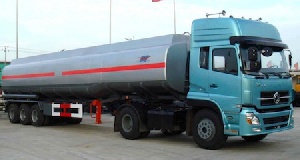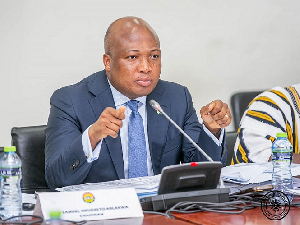Consolidation among the over 130 Oil Marketing Companies could be Ghana’s sure bet to improving standards in the downstream sector of the petroleum industry, Christophe Zyde, Puma Energy’s Chief Operating Officer for Africa has said.
“If the rules for being allowed to do something are so low you create hazardous situations, that’s where you might have issues. So, sometimes, consolidation does help to bring a bit higher standards in terms of the business environment,” Mr. Zyde told the B&FT in Johannesburg.
With a now deregulated market on the one hand and a business where dealing with currency is not easy, a lot of the smaller OMCs might struggle to compete, he said.
Aside from Goil, Total and Shell, a lot of the smaller OMCs have very slight market shares, as statistics on 137 of them compiled by the Association of Oil Marketing Companies show.
January to May 2015 figures from the Association show that UBI Petroleum, which has been taken over by Puma Energy, has a market share of 1.1% for gasoil and 0.5% for gasoline.
“Sometimes you see a lot of players popping up when the market environment becomes extremely easy. That means when there are no standards for anything, whereby you can build a re-gas station wherever you want, that is where you will see a lot of companies popping up -- which may not be typically what you want,” Christophe Zyde said.
He concedes, however, that “as long as your regulation is clear enough, is enforced enough, at a certain level of standards it does not really matter if you have a lot or just a few players”.
The January to May 2015 statistics show that Goil has market share of 16.5%for gasoline and 13.5% for gasoil, while Vivo Energy (Shell) has 14% for gasoline and 12.9% for gasoil. The other major player in the market, Total, has 12.3% market share for gasoline and 13.2% for gasoil.
With its acquisition of UBI Petroleum, Puma Energy becomes the latest OMC on the market -- although the company already has storage infrastructure in the country and is also a major supplier of aviation fuel locally.
It has a 46million litre depot in Takoradi, an aviation depot at the Kotoka Aiport, and is also building a 100million litre terminal in Tema.
The company currently sells some 6billion litres of fuel in 47 countries globally, 19 of which are in Africa.
“In Africa we have 660 retail stations, and I can tell you that those statistics are typically valid only for a week because they keep changing,” Christophe Zyde said.
“Puma Energy’s business model is to link demand with supply, through investment in infrastructure. It therefore makes a lot of sense for Puma Energy to be in Africa because it is a high-growth area, but there is a lack of infrastructure,” he said.
Click to view details



Business News of Wednesday, 9 March 2016
Source: B&FT
‘OMCs must consolidate’
Entertainment
















